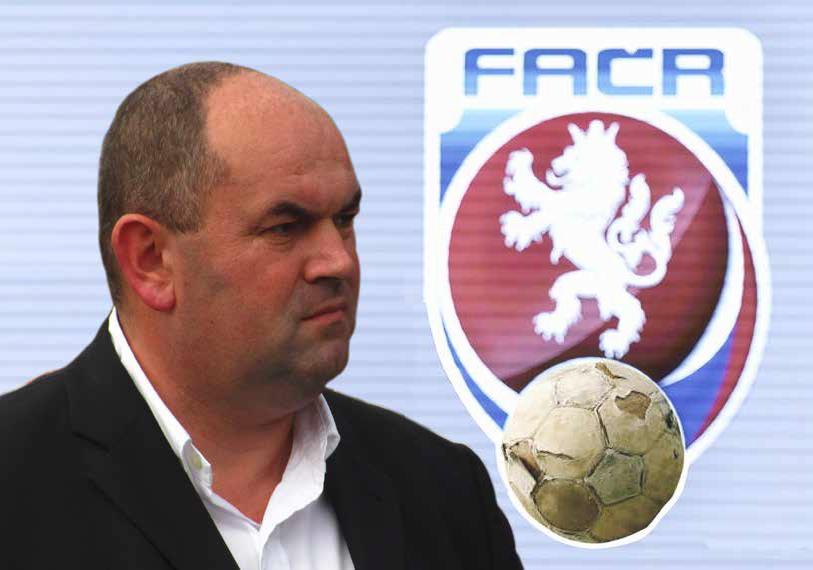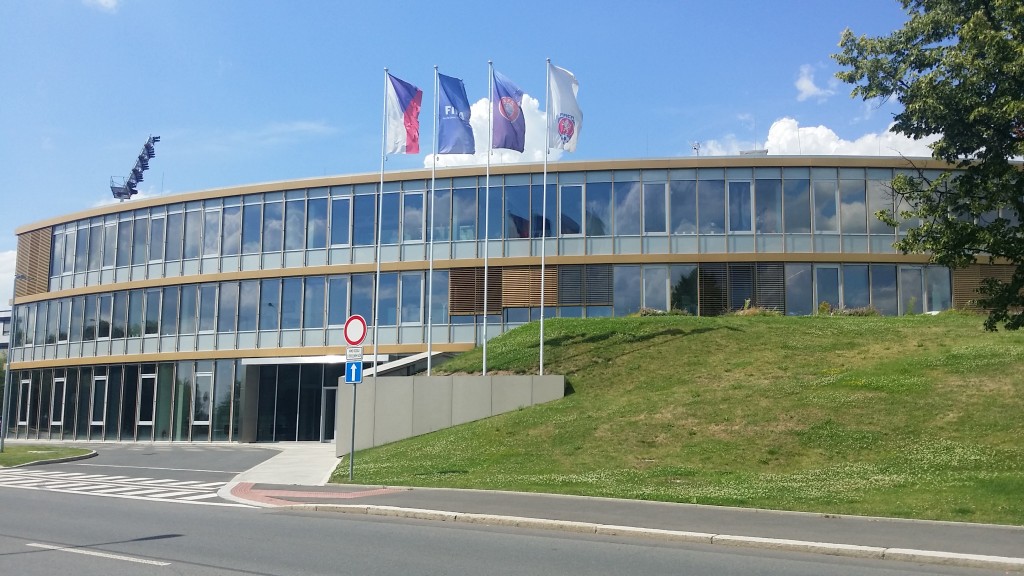Flooded with scandals, both big and small, Czech football has decided not to turn over a new leaf from the management of the last fifteen years
From zero to zero. It is in this way that one could sum up the outcome of the General Assembly of the Czech Football Federation (FAČR), which on Friday, June 2, had to renew its Executive Board. The course of the meeting was affected by the arrest of the president of the Association (and sole candidate for his succession) Miroslav Pelta, which took place at the beginning of May.
 Money, sex and Social Democrats
Money, sex and Social Democrats
This is not the first time Miroslav Pelta has ended up in the sights of the investigators. In 2004, and 2005, as general manager of Sparta Prague, was involved in the biggest scandal of Czech football regarding match-fixing and bribery of referees in the First League. At the time, several club presidents were sentenced, but Pelta escaped unscathed. The scandal which broke out in May is a different state of affairs to the previous episodes in Czech football, which usually involve fixed matches and corrupted referees. Pelta has been accused of altering the system of state subsidies for sport. In fact, the police suspect that he manipulated the Undersecretary of Sport, Simona Kratochvílová, with whom he appears to have had an affair, in the preselection of projects to be funded.
The unlikely lady-killer, thanks to another lover placed in a Steering Committee, was therefore able to get 21 projects out of the 50 selected in the first round of grants approved in 2017. Now the payment of the subsidies has been suspended and the results will have to undergo revision.
Although at first glance the case seems only too clear, it is not certain that Pelta will end up with a sentence. One of the main hurdles for the prosecution will be to show that the conduct of the former president had gone beyond the lobbying activities that are actually part of the work of the president of a sports association. And, apparently, the smoking gun proving the perceived benefits is what is missing.
Neither Pelta nor his accomplices are assumed to have obtained a percentage of intermediate subsidies, but only a support or influence to be spent on sports bodies. In some European countries, for example in Italy, the crime of “traffic of influence”, has been created, which does not have any equivalent in the Czech code and which in any case is hard to prove. The Representatives of the organizations on the subsidy list supported by Pelta actually deny any brokerage, and moreover, given the timeliness of his arrest, there has been a lack of time to show gratitude.
“He just jabbered on the phone”, said well-known Social Democratic lawyer Miroslav Jansta and president of ČUS, the Czech Sports Union, according to whom Pelta is merely a braggart and a conman. Jansta actually seems to speak on his behalf and on behalf of his party, which has a lot of influence in sports organizations in the Czech Republic. Another Social Democrat is Kateřina Valachová, the Minister of Sport, who immediately resigned as a result of the scandal. Regardless of the judicial positions of Pelta and Kratochvílová, it is clear that the system prepared by Valachová, to subdivide “the subsidies fairly and equitably”, made a mess of the first strike: the police believe that none of the fifty projects meet the legal criteria. In addition, according to the Control Authority, serious shortages in fundraising were evident in the years from 2013 to 2015, when the ministry was run by Social Democrat Marcel Chládek. Since leaving politics, the former minister has become a high-ranking manager of the Football Federation. The love between the Social Democrats and the Czech football seems quite boundless.
The main loser in this stalemate in the Football Federation, is actually the professional sector of the world of “The beautiful game”. The association First League clubs, the Ligová fotbalová asociace – the union of football owners promoted mainly by the do-all Chinese investors in the Czech Republic and owner of Slavia Praha, Jaroslav Tvrdík – decided in mid-May to commit itself to kicking out also the Vice-President Berbr, but everything went up into smoke because of the lack of agreement with Daniel Křetinský, the owner of Sparta Prague.
However, as paradoxical as it may be, First League football is relatively unimportant within the FAČR. “Professional football consists only of 32 votes out of the 202 delegates in the Assembly”, says sports expert and journalist Luděk Mádl. The local football clubs dominate. “About fifteen years ago, when local officials began to leave old officials, Berbr began to occupy these vacancies (generally not very prestigious and unpaid posts) with his former colleagues coming from the ranks of referees. In this way they formed a monolithic block difficult to circumnavigate in the assemblies”, as Luděk Mádl portrays the power relations within the Association.
In fact, Czech football is not only corrupt at its peak. In June, the Regional Court of Central Bohemia confirmed the verdict of guilty in the first-degree for nineteen referees, officials and football club managers accused of having fixed the games regional divisions of Central Bohemia. The referees were given “three litres”, or three thousand crowns, to fix the matches. And many other cases of suspicious refereeing in local circles have been reported by the Cistyfotbal.cz association. The association has even drawn up a blacklist of referees whose performances have been suspected.
It is no surprise, then, that there is skepticism surrounding the possibilities of change from within the Football Federation. Those who push for renovation could be the new owners of First League clubs, such as the Chinese from CEFC, who see their investment devalued in image by scandals of all kinds. Further pressure, but to change the complicated electoral system, arrives also from FIFA and UEFA, but do not enter into the matter of the current management of Czech football. On the other hand, the sponsors are what really cause a loss of patience. Between May and June the ePojisteni.cz brokers announced their farewell, having been the main sponsor for this season. After two decades the Gambrinus beer label has almost entirely left Czech football. From the 2018/2019 season, a major sponsoring program by the Fortuna betting company should start, based on a contract signed by Pelta. Even now the state does not seem to want to scale down its support to football and has sent the necessary money to the FAČR with Pelta still in prison. However, starving the beast seems to be the only way to create a turning point in the direction of the main organization of Czech football.
by Jakub Horňáček





